-
 Bitcoin
Bitcoin $81,688.6934
-1.67% -
 Ethereum
Ethereum $1,808.0558
-1.51% -
 Tether USDt
Tether USDt $1.0000
0.02% -
 XRP
XRP $2.0949
-3.75% -
 BNB
BNB $602.7832
-0.99% -
 Solana
Solana $125.7645
0.10% -
 USDC
USDC $1.0001
0.00% -
 Dogecoin
Dogecoin $0.1657
-3.02% -
 Cardano
Cardano $0.6548
-3.60% -
 TRON
TRON $0.2335
0.83% -
 Toncoin
Toncoin $3.8964
5.00% -
 Chainlink
Chainlink $13.3899
-2.01% -
 UNUS SED LEO
UNUS SED LEO $9.1093
-5.20% -
 Stellar
Stellar $0.2647
-1.84% -
 Avalanche
Avalanche $18.8086
-4.59% -
 Shiba Inu
Shiba Inu $0.0...01245
-2.38% -
 Sui
Sui $2.3064
-1.20% -
 Hedera
Hedera $0.1642
-5.59% -
 Litecoin
Litecoin $85.5366
-0.83% -
 Polkadot
Polkadot $4.0380
-2.13% -
 MANTRA
MANTRA $6.2126
-2.21% -
 Bitcoin Cash
Bitcoin Cash $300.4579
-1.64% -
 Bitget Token
Bitget Token $4.5426
-2.91% -
 Dai
Dai $0.9999
-0.01% -
 Ethena USDe
Ethena USDe $1.0002
0.04% -
 Pi
Pi $0.7343
-8.05% -
 Hyperliquid
Hyperliquid $12.4904
-3.27% -
 Monero
Monero $216.4307
0.07% -
 Uniswap
Uniswap $5.8871
-2.35% -
 Aptos
Aptos $5.3023
0.77%
How to buy Bitcoin cheaply through OTC transactions?
OTC Bitcoin trading allows for larger transactions and potentially better prices, but finding a reputable broker and understanding risks is crucial.
Mar 27, 2025 at 07:50 pm
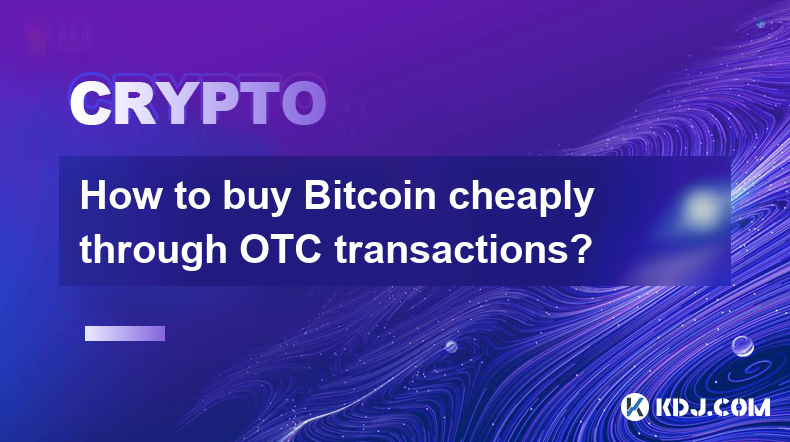
Understanding Over-the-Counter (OTC) Bitcoin Trading
Over-the-counter (OTC) trading refers to transactions conducted directly between two parties, bypassing traditional exchanges. This method is often favored by high-net-worth individuals and institutions due to the potential for larger transaction sizes and potentially better pricing compared to public exchanges. However, it's crucial to understand the risks and complexities involved before engaging in OTC Bitcoin trading. Finding a reputable counterparty is paramount to avoid scams and ensure a secure transaction.
Finding Reputable OTC Bitcoin Brokers
Locating a trustworthy OTC broker is the first and most critical step. Avoid brokers with dubious online reputations or lacking transparency. Thorough research is essential. Check online reviews, seek recommendations from trusted sources within the cryptocurrency community, and verify their licensing and registration where applicable. Remember, due diligence is key to mitigating risks.
Navigating the OTC Bitcoin Buying Process
The process of buying Bitcoin through an OTC broker typically involves several stages. These steps can vary slightly depending on the specific broker, but the core elements remain consistent.
Initial Contact and Verification: You'll typically initiate contact with the broker, providing necessary identification and verification information. This is a crucial anti-money laundering (AML) and know-your-customer (KYC) compliance step.
Negotiating the Price and Amount: You'll negotiate the price per Bitcoin and the quantity you wish to purchase. The price will often be influenced by market conditions and the transaction size. Larger transactions might offer a slightly better price per Bitcoin.
Payment Method Selection: OTC brokers often accept various payment methods, including wire transfers, ACH transfers, and sometimes even stablecoins. Confirm the accepted methods with your chosen broker before proceeding.
Transaction Execution: Once the price and payment method are agreed upon, you'll execute the transaction. This might involve sending funds to the broker's designated account and receiving the Bitcoin in your wallet.
Bitcoin Transfer and Confirmation: After the broker receives your payment, they'll transfer the agreed-upon amount of Bitcoin to your cryptocurrency wallet. Confirm the transaction on the blockchain to ensure successful completion.
Minimizing Costs in OTC Bitcoin Transactions
While OTC trading offers the potential for lower prices compared to exchanges, several factors can still influence the overall cost. Understanding these factors allows you to minimize expenses.
Negotiating the Price: Actively negotiate the price with the broker. Research current market prices to ensure you're getting a fair deal. Larger transaction sizes often command better prices.
Transaction Fees: Be aware of any transaction fees charged by the broker. These fees can vary depending on the broker and the transaction size. Clarify the fee structure upfront to avoid surprises.
Payment Method Fees: Consider the fees associated with your chosen payment method. Wire transfers and ACH transfers often have associated fees, which should be factored into your overall cost calculation.
Spread: The difference between the bid and ask price is the spread. A smaller spread translates to a better price for you. Shop around and compare spreads offered by different brokers.
Security Considerations in OTC Bitcoin Transactions
Security is paramount in OTC trading. The decentralized nature of cryptocurrency makes it vulnerable to scams and fraud. Here are some crucial security measures to consider.
Verify Broker Reputation: Always thoroughly vet the broker before engaging in any transaction. Check online reviews, seek recommendations, and verify their legitimacy.
Secure Communication Channels: Use secure communication channels to interact with the broker. Avoid sharing sensitive information through unsecured platforms.
Secure Wallet: Use a secure and reputable cryptocurrency wallet to store your Bitcoin. Avoid using exchanges as long-term storage solutions. Implement strong password practices and enable two-factor authentication.
Escrow Services: For larger transactions, consider using an escrow service to mitigate risks. An escrow service acts as a neutral third party, holding funds until both parties fulfill their obligations.
Legal and Regulatory Compliance
The legal landscape surrounding cryptocurrency is constantly evolving. Understanding the relevant regulations in your jurisdiction is essential to ensure compliance.
KYC/AML Regulations: Be prepared to provide identification and verification information to comply with KYC/AML regulations. This is a standard procedure for most reputable OTC brokers.
Tax Implications: Understand the tax implications of buying and selling Bitcoin in your jurisdiction. Consult a tax professional for guidance on reporting your cryptocurrency transactions.
Jurisdictional Differences: Cryptocurrency regulations vary significantly across different jurisdictions. Ensure you understand the laws in your region before engaging in OTC trading.
Frequently Asked Questions
Q: Are OTC Bitcoin transactions safer than exchange trading?
A: OTC transactions can be safer in terms of avoiding large exchange hacks, but they also carry the risk of interacting with fraudulent brokers. Thorough due diligence is crucial in both scenarios.
Q: How do I find a reputable OTC Bitcoin broker?
A: Research online reviews, seek recommendations from trusted sources, and verify their licensing and registration where applicable. Avoid brokers with dubious reputations or lacking transparency.
Q: What are the typical payment methods used in OTC Bitcoin transactions?
A: Common payment methods include wire transfers, ACH transfers, and sometimes stablecoins. The specific methods accepted will vary depending on the broker.
Q: What are the potential risks of OTC Bitcoin transactions?
A: Potential risks include dealing with fraudulent brokers, encountering scams, and facing difficulties in resolving disputes. Thorough due diligence and the use of escrow services can help mitigate these risks.
Q: Are there any fees associated with OTC Bitcoin transactions?
A: Yes, fees can include broker fees, payment processing fees, and potential spreads between the bid and ask price. It's important to understand the fee structure before engaging in a transaction.
Q: How do I protect myself from scams in OTC Bitcoin transactions?
A: Thoroughly research the broker, use secure communication channels, utilize escrow services for larger transactions, and never share sensitive information unless you are absolutely sure of the broker's legitimacy.
Disclaimer:info@kdj.com
The information provided is not trading advice. kdj.com does not assume any responsibility for any investments made based on the information provided in this article. Cryptocurrencies are highly volatile and it is highly recommended that you invest with caution after thorough research!
If you believe that the content used on this website infringes your copyright, please contact us immediately (info@kdj.com) and we will delete it promptly.
- The Rise and Reasons Behind the BNB Chain Meme Token Craze
- 2025-03-31 10:40:13
- The Cosmos ecosystem is set to transform blockchain interoperability with IBC Eureka
- 2025-03-31 10:40:13
- Ethereum's (ETH) Deflationary Mechanism Continues to Operate at Full Strength, Driven by Active Participation from DeFi Protocols
- 2025-03-31 10:35:12
- Value creation transcends just coding—it's nurtured by belief
- 2025-03-31 10:35:12
- Around a quarter of S&P 500 firms will have invested in Bitcoin by 2030
- 2025-03-31 10:30:12
- Amouranth's Home Invasion Underscores Targeting of Bitcoin Holders and Raises Concerns Over Growing Risks Faced by High-Profile Influencers
- 2025-03-31 10:30:12
Related knowledge
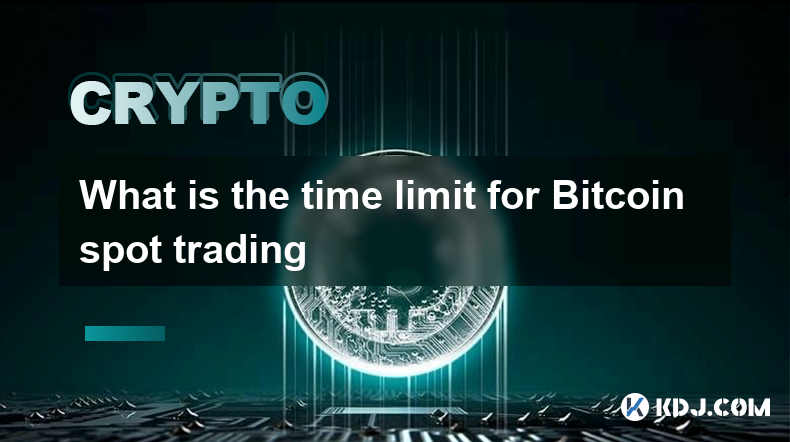
What is the time limit for Bitcoin spot trading
Mar 30,2025 at 10:43am
? There's no single, universally applicable 'time limit' for Bitcoin spot trading. Unlike futures contracts which have defined expiration dates, spot trading involves the immediate exchange of Bitcoin for fiat currency (or vice versa). The transaction is executed almost instantly, pending confirmation on the Bitcoin blockchain. However, several factors ...
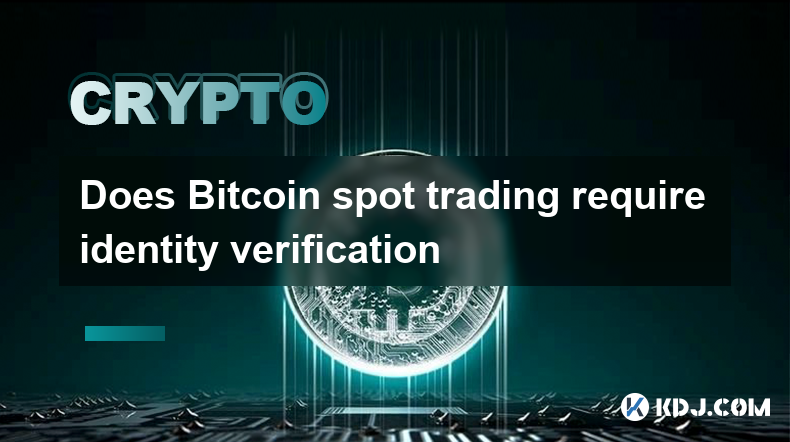
Does Bitcoin spot trading require identity verification
Mar 31,2025 at 06:08am
? Understanding KYC/AML Regulations in Crypto ExchangesThe question of whether Bitcoin spot trading requires identity verification hinges largely on the exchange you're using. There's no universal requirement for identity verification to trade Bitcoin spot. However, most reputable and larger exchanges operating globally implement Know Your Customer (KYC...
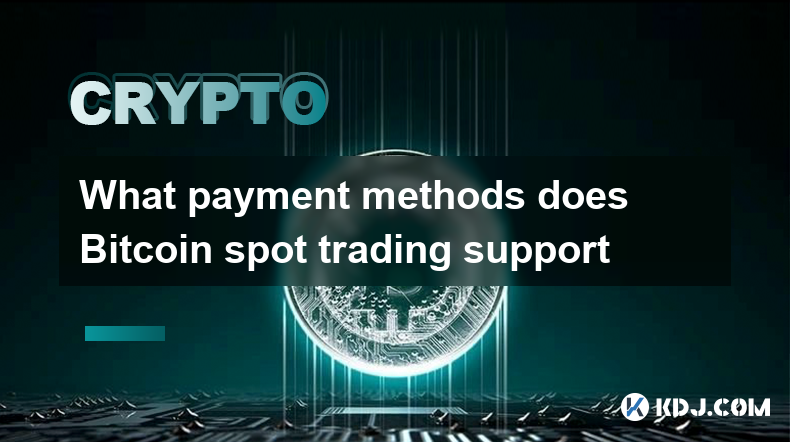
What payment methods does Bitcoin spot trading support
Mar 30,2025 at 12:43pm
? Understanding Bitcoin Spot Trading Payment MethodsBitcoin spot trading refers to the immediate exchange of Bitcoin (BTC) for another currency, typically fiat money like USD, EUR, or another cryptocurrency. Unlike futures or derivatives trading, spot trading involves the actual transfer of Bitcoin at the current market price. The payment methods accept...
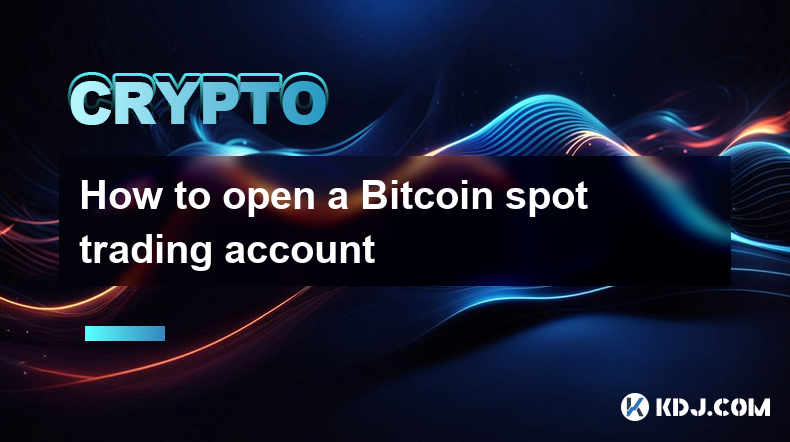
How to open a Bitcoin spot trading account
Mar 29,2025 at 12:43pm
Choosing the Right ExchangeOpening a Bitcoin spot trading account involves selecting a reputable cryptocurrency exchange. Several factors are crucial here. Consider the exchange's security features – look for two-factor authentication (2FA) and robust security protocols. Examine trading fees, as these can significantly impact your profits. Check the av...
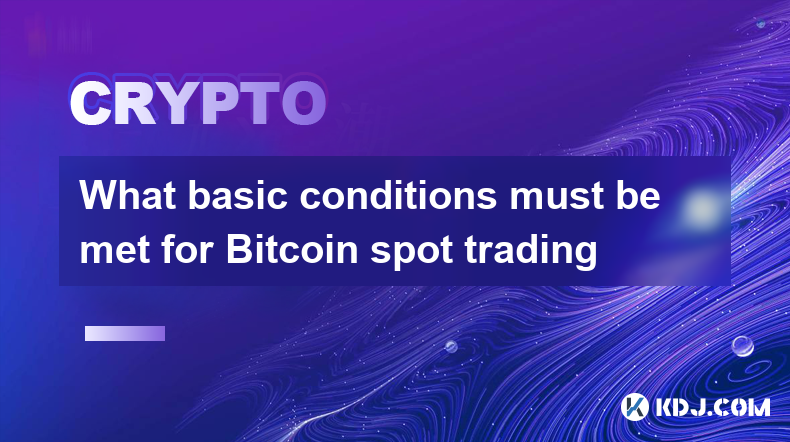
What basic conditions must be met for Bitcoin spot trading
Mar 29,2025 at 11:43pm
? Understanding the Prerequisites for Bitcoin Spot TradingBitcoin spot trading, unlike futures or derivatives trading, involves the immediate exchange of Bitcoin (BTC) for fiat currency (like USD, EUR, etc.) or another cryptocurrency. To engage in this, several crucial conditions must be met, both on the regulatory and practical fronts. Let's delve into...
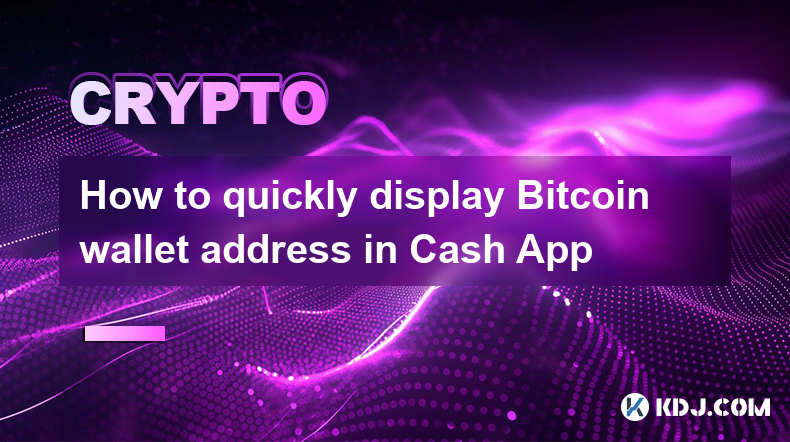
How to quickly display Bitcoin wallet address in Cash App
Mar 31,2025 at 06:35am
How to Quickly Display Your Bitcoin Wallet Address in Cash App Cash App, a popular peer-to-peer payment app, allows users to buy, sell, and hold Bitcoin. However, directly displaying your Bitcoin wallet address isn't as straightforward as some other crypto wallets. This article details how to access and share your Bitcoin address within the Cash App eco...

What is the time limit for Bitcoin spot trading
Mar 30,2025 at 10:43am
? There's no single, universally applicable 'time limit' for Bitcoin spot trading. Unlike futures contracts which have defined expiration dates, spot trading involves the immediate exchange of Bitcoin for fiat currency (or vice versa). The transaction is executed almost instantly, pending confirmation on the Bitcoin blockchain. However, several factors ...

Does Bitcoin spot trading require identity verification
Mar 31,2025 at 06:08am
? Understanding KYC/AML Regulations in Crypto ExchangesThe question of whether Bitcoin spot trading requires identity verification hinges largely on the exchange you're using. There's no universal requirement for identity verification to trade Bitcoin spot. However, most reputable and larger exchanges operating globally implement Know Your Customer (KYC...

What payment methods does Bitcoin spot trading support
Mar 30,2025 at 12:43pm
? Understanding Bitcoin Spot Trading Payment MethodsBitcoin spot trading refers to the immediate exchange of Bitcoin (BTC) for another currency, typically fiat money like USD, EUR, or another cryptocurrency. Unlike futures or derivatives trading, spot trading involves the actual transfer of Bitcoin at the current market price. The payment methods accept...

How to open a Bitcoin spot trading account
Mar 29,2025 at 12:43pm
Choosing the Right ExchangeOpening a Bitcoin spot trading account involves selecting a reputable cryptocurrency exchange. Several factors are crucial here. Consider the exchange's security features – look for two-factor authentication (2FA) and robust security protocols. Examine trading fees, as these can significantly impact your profits. Check the av...

What basic conditions must be met for Bitcoin spot trading
Mar 29,2025 at 11:43pm
? Understanding the Prerequisites for Bitcoin Spot TradingBitcoin spot trading, unlike futures or derivatives trading, involves the immediate exchange of Bitcoin (BTC) for fiat currency (like USD, EUR, etc.) or another cryptocurrency. To engage in this, several crucial conditions must be met, both on the regulatory and practical fronts. Let's delve into...

How to quickly display Bitcoin wallet address in Cash App
Mar 31,2025 at 06:35am
How to Quickly Display Your Bitcoin Wallet Address in Cash App Cash App, a popular peer-to-peer payment app, allows users to buy, sell, and hold Bitcoin. However, directly displaying your Bitcoin wallet address isn't as straightforward as some other crypto wallets. This article details how to access and share your Bitcoin address within the Cash App eco...
See all articles






















































































